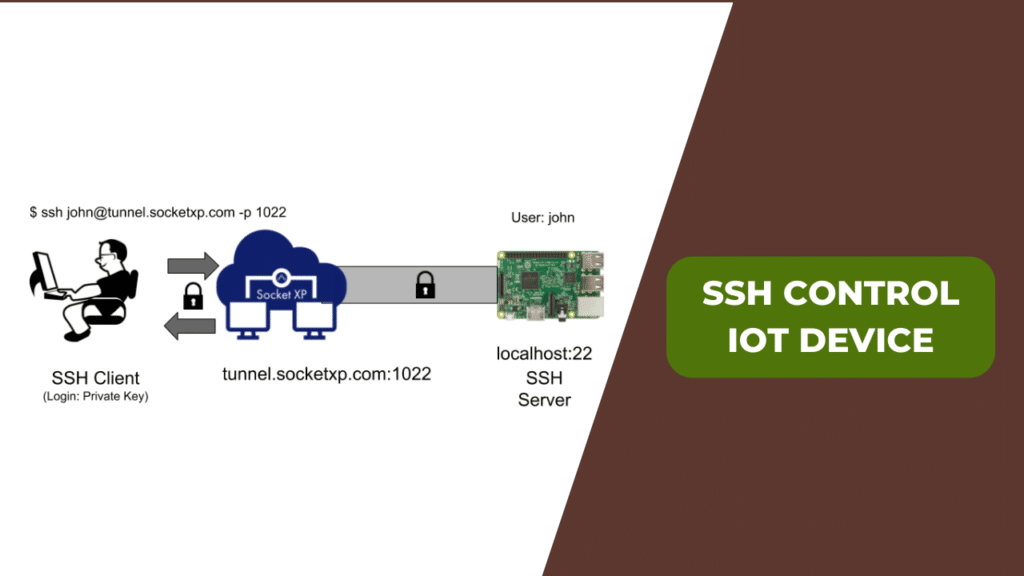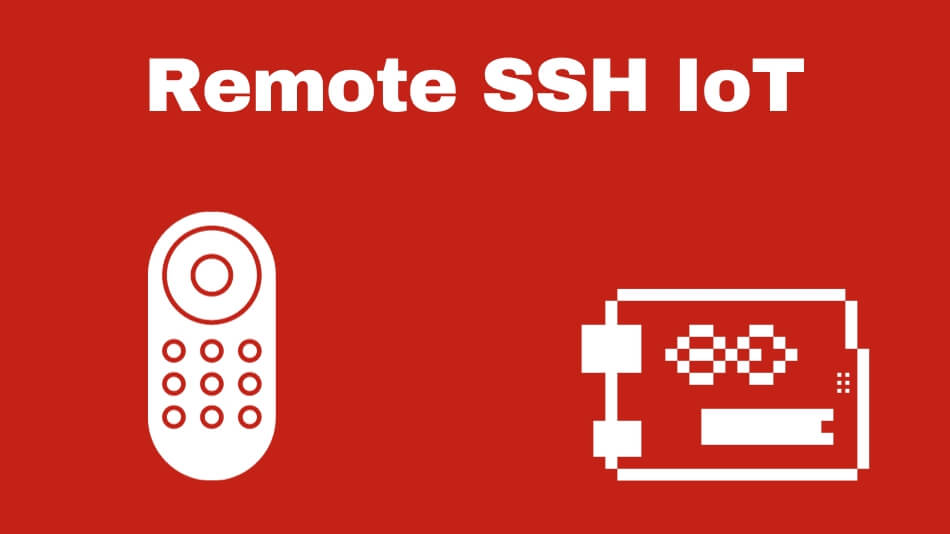Imagine a world where your devices are not just smart but also secure. That’s the promise of the best SSH IoT device, a game-changer in the realm of interconnected technology. Whether you're managing home automation systems, remote servers, or industrial IoT setups, having the right SSH-enabled device can make all the difference. It's not just about convenience—it's about safeguarding your digital ecosystem from prying eyes and potential threats.
In today’s hyper-connected landscape, security is no longer optional. The Internet of Things (IoT) has transformed the way we interact with technology, but with great connectivity comes great responsibility. SSH, or Secure Shell, acts as a digital fortress, encrypting your communications and ensuring that your data stays safe. Finding the right SSH IoT device is like equipping your smart home or office with a virtual lock that only you can unlock.
But hold up! With so many options flooding the market, how do you pinpoint the best SSH IoT device for your needs? That’s where we come in. This article will walk you through everything you need to know, from the basics of SSH and IoT to the top devices that are making waves in the industry. We’ll also throw in some expert tips and tricks to help you make an informed decision. So, buckle up and let’s dive in!
Here's a quick guide to help you navigate this article:
- What is SSH and Why Does It Matter?
- IoT Basics: Understanding the Backbone of Smart Tech
- The SSH-IoT Combo: Why It’s a Must-Have
- Top 10 Best SSH IoT Devices in 2023
- Key Criteria for Selecting the Best SSH IoT Device
- Comparison Table: Best SSH IoT Devices
- Security Features to Look For
- Performance Metrics That Matter
- Expert Tips for Maximizing Your SSH IoT Setup
- Future Trends in SSH IoT Devices
What is SSH and Why Does It Matter?
Let’s start with the basics. SSH, or Secure Shell, is like a secret handshake for your devices. It’s a network protocol that encrypts data exchanged between two systems, making it impossible for unauthorized parties to snoop on your activities. Think of it as the digital equivalent of a private conversation in a crowded room—nobody else can hear what you’re saying.
SSH isn’t just for tech geeks anymore. As more and more devices get connected to the internet, the need for secure communication has skyrocketed. Without SSH, your smart fridge could be chatting with your smart thermostat in plain text, leaving your data vulnerable to hackers. That’s why having an SSH-enabled IoT device is crucial—it keeps your smart world secure and private.
SSH in a Nutshell
Here’s a quick rundown of what SSH brings to the table:
- Encryption: SSH encrypts all data transmitted between devices, making it unreadable to anyone who intercepts it.
- Authentication: It ensures that only authorized users can access your devices, preventing unauthorized access.
- Remote Access: SSH allows you to control your devices from anywhere in the world, as long as you have an internet connection.
IoT Basics: Understanding the Backbone of Smart Tech
Now that we’ve got SSH sorted, let’s talk about IoT. The Internet of Things is the network of physical devices embedded with sensors, software, and connectivity, enabling them to exchange data. From smart thermostats to wearable fitness trackers, IoT is everywhere, and it’s changing the way we live and work.
But here’s the catch: with great power comes great responsibility. IoT devices are often seen as low-hanging fruit for hackers because they’re not always equipped with robust security measures. That’s where SSH comes in. By integrating SSH into your IoT setup, you’re adding an extra layer of protection that can deter even the most determined cybercriminals.
The SSH-IoT Combo: Why It’s a Must-Have
Let’s face it: IoT without SSH is like a house without locks. Sure, your devices might be smart, but they’re also wide open to potential threats. By combining SSH with IoT, you’re creating a secure ecosystem where your devices can communicate freely without compromising your privacy.
Here’s why the SSH-IoT combo is a game-changer:
- Enhanced Security: SSH encrypts all data transmitted between IoT devices, making it nearly impossible for hackers to intercept sensitive information.
- Remote Management: With SSH, you can manage your IoT devices from anywhere in the world, ensuring that you’re always in control.
- Scalability: SSH-enabled IoT devices can handle large-scale deployments without sacrificing performance or security.
Top 10 Best SSH IoT Devices in 2023
Now that we’ve covered the basics, let’s dive into the meat of the matter: the best SSH IoT devices available today. These devices have been carefully selected based on their performance, security features, and overall value for money.
1. Raspberry Pi 4 Model B
The Raspberry Pi 4 Model B is a powerhouse of a device, perfect for anyone looking to set up a secure IoT network. With its robust performance and extensive support for SSH, it’s a top choice for hobbyists and professionals alike.
2. ESP32-WROOM
The ESP32-WROOM is a compact yet powerful IoT module that supports SSH out of the box. Its low power consumption and high processing power make it ideal for battery-powered applications.
3. BeagleBone Black
The BeagleBone Black is another popular choice for SSH-enabled IoT setups. With its easy-to-use interface and extensive community support, it’s a great option for beginners and experts alike.
Key Criteria for Selecting the Best SSH IoT Device
When it comes to choosing the right SSH IoT device, there are several factors to consider. Here are the key criteria you should keep in mind:
- Performance: Look for devices with high processing power and sufficient memory to handle your IoT workloads.
- Security: Ensure that the device supports SSH and has other security features like firewalls and intrusion detection systems.
- Connectivity: Check for support for multiple protocols, including Wi-Fi, Bluetooth, and Ethernet.
- Scalability: Make sure the device can handle future upgrades and expansions without compromising performance.
Comparison Table: Best SSH IoT Devices
| Device | Performance | Security | Connectivity | Price |
|---|---|---|---|---|
| Raspberry Pi 4 Model B | High | Excellent | Wi-Fi, Bluetooth, Ethernet | $55 |
| ESP32-WROOM | Medium | Good | Wi-Fi, Bluetooth | $8 |
| BeagleBone Black | Medium | Excellent | Wi-Fi, Ethernet | $50 |
Security Features to Look For
Security is the backbone of any SSH IoT setup. Here are some key features to look for when choosing a device:
- End-to-End Encryption: Ensure that the device supports strong encryption protocols like AES-256.
- Firewall Protection: A built-in firewall can help protect your devices from unauthorized access.
- Intrusion Detection: Look for devices that offer real-time monitoring and alerts for suspicious activity.
Performance Metrics That Matter
Performance is another critical factor when it comes to SSH IoT devices. Here are some metrics to consider:
- Processing Power: A powerful processor ensures that your device can handle complex tasks without breaking a sweat.
- Memory: Sufficient memory is essential for running multiple applications and services simultaneously.
- Power Consumption: Low power consumption is crucial for battery-powered devices, ensuring longer runtime between charges.
Expert Tips for Maximizing Your SSH IoT Setup
Now that you’ve got the basics down, here are some expert tips to help you get the most out of your SSH IoT setup:
- Regular Updates: Keep your device firmware and software up to date to ensure optimal performance and security.
- Strong Passwords: Use strong, unique passwords for your SSH connections to prevent brute-force attacks.
- Network Segmentation: Segment your IoT devices from your main network to minimize the risk of a breach.
Future Trends in SSH IoT Devices
As technology continues to evolve, so do the capabilities of SSH IoT devices. Here are some trends to watch out for in the coming years:
- Artificial Intelligence: AI-powered SSH IoT devices will offer enhanced security and automation capabilities.
- 5G Connectivity: The rollout of 5G networks will enable faster and more reliable communication between IoT devices.
- Edge Computing: By processing data closer to the source, edge computing will reduce latency and improve performance.
Conclusion
In conclusion, the best SSH IoT device is one that balances performance, security, and scalability. Whether you’re setting up a smart home or managing an industrial IoT network, having the right device can make all the difference. By following the tips and guidelines outlined in this article, you’ll be well on your way to creating a secure and efficient IoT ecosystem.
So, what are you waiting for? Dive into the world of SSH IoT devices and take your smart tech to the next level. And don’t forget to leave a comment or share this article with your friends and colleagues. Together, let’s build a smarter, safer future!


